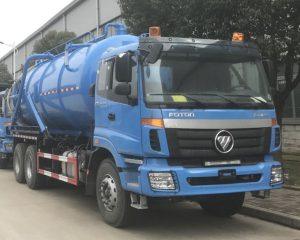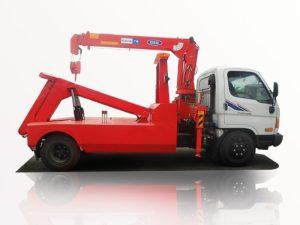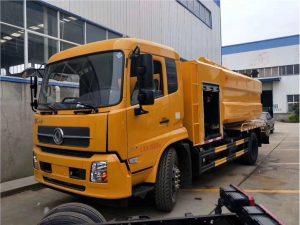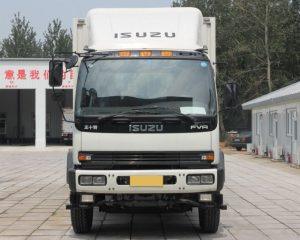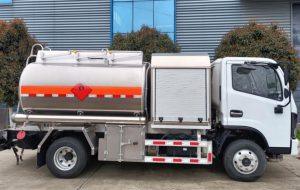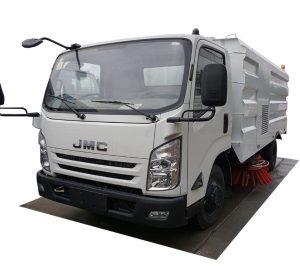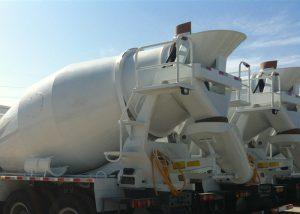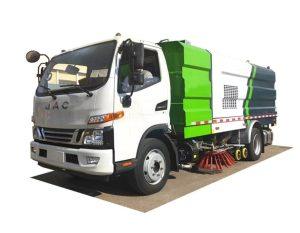Monday to Saturday - 8:00 -17:30
Exploring the Advantages and Uses of a 10,000 Gallon Water Truck
Introduction
Water is a crucial resource in various industries, agriculture, and construction. When large volumes are needed, a 10,000-gallon water truck can be an invaluable asset. Designed to transport and distribute water efficiently, these trucks offer a wide array of applications. In this comprehensive article, we will explore the features, uses, benefits, and maintenance of 10,000-gallon water trucks. Whether you are a contractor, farmer, or business owner, understanding this essential equipment can help optimize your operations.
What is a 10,000 Gallon Water Truck?
A 10,000-gallon water truck is a specialized vehicle equipped with a tank that can hold up to 10,000 gallons of water. These trucks are typically used for transporting water to various sites for multiple purposes, such as construction projects, agriculture, firefighting, and dust control. The vehicle design often includes pumping systems, valves, and fittings for easy loading and unloading of water.
Key Features of 10,000 Gallon Water Trucks
Understanding the fundamental features of a 10,000-gallon water truck is crucial for selecting the right vehicle for your needs. Here are some of the most important aspects:
- Tank Material: Most water trucks have tanks made of steel or polyethylene, with both materials providing durability and resistance to corrosion.
- Pumping System: A robust pumping system is vital for filling and emptying the tank quickly and efficiently.
- Distribution System: Many trucks come equipped with spray nozzles or hoses for evenly distributing water over a wide area.
- Certification: Ensure your truck meets local regulations for transporting water, including food-grade certifications if necessary.
Uses of a 10,000 Gallon Water Truck
Agriculture
In farming, water trucks play a critical role in irrigation, especially in arid regions where water sources may be scarce. For example, a 10,000-gallon truck can transport water directly to fields, ensuring crops receive the necessary hydration. Farmers can also use these trucks for livestock watering and cleaning farm equipment.
Construction
Construction sites require substantial water supplies for dust control, mixing concrete, and curing materials. A 10,000-gallon water truck can easily meet these demands, ensuring a safer and cleaner work environment. For instance, using the truck to spray water on dusty roads can significantly reduce airborne particles, improving air quality.
Firefighting Efforts
During wildfires and emergency situations, water trucks can serve as a rapid response tool to provide water to firefighters in remote locations. Their large capacity allows for sustained water delivery, which can be vital in controlling flames before specialized assistance arrives.
Dust Control
Keeping dust levels down on construction sites and unpaved roads is essential for health and safety. Water trucks can effectively wet the surface to minimize dust production. For example, regularly scheduled spraying with a 10,000-gallon truck can greatly enhance visibility and reduce respiratory issues among workers and nearby residents.
Benefits of Using a 10,000 Gallon Water Truck
Cost-Effective Water Transport
One of the primary advantages of a 10,000-gallon water truck is cost efficiency. Transporting large quantities of water reduces the number of trips required, saving time and fuel expenses. Additionally, having on-site water significantly enhances operational efficiency for various projects.
Increased Flexibility
With the capacity to deliver water to numerous locations, water trucks provide flexibility in operations. Whether it’s supplying a remote job site, agricultural venture, or emergency service, the truck can adapt to varying demands.
Environmental Impact
Water conservation is becoming increasingly critical. By utilizing a water truck to deliver water to specific locations, wastage is minimized compared to relying on traditional irrigation systems. This targeted approach can lead to a more sustainable use of water resources.
Improved Productivity
Having reliable access to water enhances productivity across various sectors. Workers can focus on their tasks without the worries of water shortages or interruptions. For instance, in a construction scenario, consistent access to water for dust control enables smoother progress.
Choosing the Right 10,000 Gallon Water Truck
Considerations Before Purchase
When selecting a 10,000-gallon water truck, certain factors need to be weighed to ensure it meets your specific requirements:
- Tank Configuration: Determine the best tank shape and configuration for your needs—horizontal tanks can offer lower centers of gravity, while vertical tanks allow for easy maneuvering.
- Vehicle Type: Choose between a dedicated water truck or a tank mounted on a standard vehicle, depending on your budget and purpose.
- Engine Power: Consider the engine power necessary for your driving conditions. If you are navigating hilly terrain, a more powerful engine may be required.
New vs. Used Water Trucks
Deciding between a new and used 10,000-gallon water truck relies on various factors:
| Aspect | New Water Truck | Used Water Truck |
|---|---|---|
| Cost | Higher initial investment | Lower purchase price |
| Condition | Usually in pristine condition | Condition may vary greatly |
| Warranty | Often comes with a warranty | Limited or no warranty |
| Latest Features | May include modern technology | May lack some modern features |
Vendor Considerations
Choosing a reliable vendor is critical for acquiring a quality water truck. Research vendors based on their reputation, customer reviews, and after-sale support. Consider the following points:
- Availability of parts and service
- Warranty terms
- Expertise of the sales staff
Maintenance of a 10,000 Gallon Water Truck
Routine Inspections
Regular inspections help keep your water truck running efficiently. Here are some components to check:
- Tank for leaks or damage
- Pump operation and seals
- Hoses and connections for wear
- Brakes and tires for safety
Cleaning the Tank
Maintaining water quality is crucial. It’s recommended to clean out the tank regularly, especially if the truck is used to transport potable water. Use the following process:
- Drain the tank completely.
- Scrub the interior walls using a safe cleaning solution.
- Rinse thoroughly to remove all residues.
- Fill with clean water to flush out any remaining contaminants.
Seasonal Maintenance Tips
Depending on the climate, seasonal changes can affect the operation of your water truck. Prepare for winter by ensuring that the plumbing system is drained to prevent freezing and damage. Conversely, check for rust issues in humid months.
Common Problems and Solutions
Pumping Issues
If you experience problems with the pump not delivering water, check for blockages in hoses or filters. Additionally, ensure that the pump’s power source is functioning correctly.
Tank Leaks
For leaks in the tank, assess whether repairs are feasible or if a replacement is necessary. If it’s a small hole, a patch kit may suffice; however, larger damages require professional evaluation.
Regulatory Compliance
Always be aware of and adhere to local regulations regarding water transport. Failure to comply can result in fines or operational shutdowns.
Practical Examples and Tips
Case Study: Dust Control on Construction Sites
In a recent construction project in California, a company utilized a 10,000-gallon water truck to control dust emissions. They scheduled regular spraying; this resulted in improved visibility and feedback from neighboring communities about reduced pollution levels.
Effective Irrigation Strategy
A farmer in Arizona leveraged a 10,000-gallon water truck to combat drought conditions. By transporting water to designated irrigation points, crops thrived, and livestock remained healthy throughout the dry season. They achieved a substantial yield increase by ensuring proper watering schedules.
Emergency Fire Response
During a wildfire in Oregon, local firefighters employed a 10,000-gallon water truck to minimize fire spread in remote areas. The quick response using this mobile water supply helped prevent property damage and protected wildlife.
Frequently Asked Questions (FAQ)
What is the average cost of a 10,000-gallon water truck?
The cost can vary significantly based on whether the truck is new or used, the features it offers, and the manufacturer. Generally, prices range from $30,000 to $100,000.
Can I use a water truck for potable water?
Yes, but ensure the truck is constructed from food-grade materials and complies with local health regulations for transporting potable water.
How often should I maintain my water truck?
Routine inspections should be performed at least once a month, with a thorough cleaning and maintenance check recommended at least twice a year.
What sizes do water trucks come in?
Water trucks typically range from 1,000 to 10,000 gallons, with larger trucks available up to 20,000 gallons, depending on operational needs.
Is special training required to operate a water truck?
While no specialized training may be required for standard operations, it’s recommended that drivers have knowledge of handling heavy vehicles and an understanding of safety protocols.
What should I do if I encounter a leak in my water tank?
If a leak is detected, assess its size. Small leaks may be patched, while significant damage may require consulting a professional or replacing the tank entirely.


